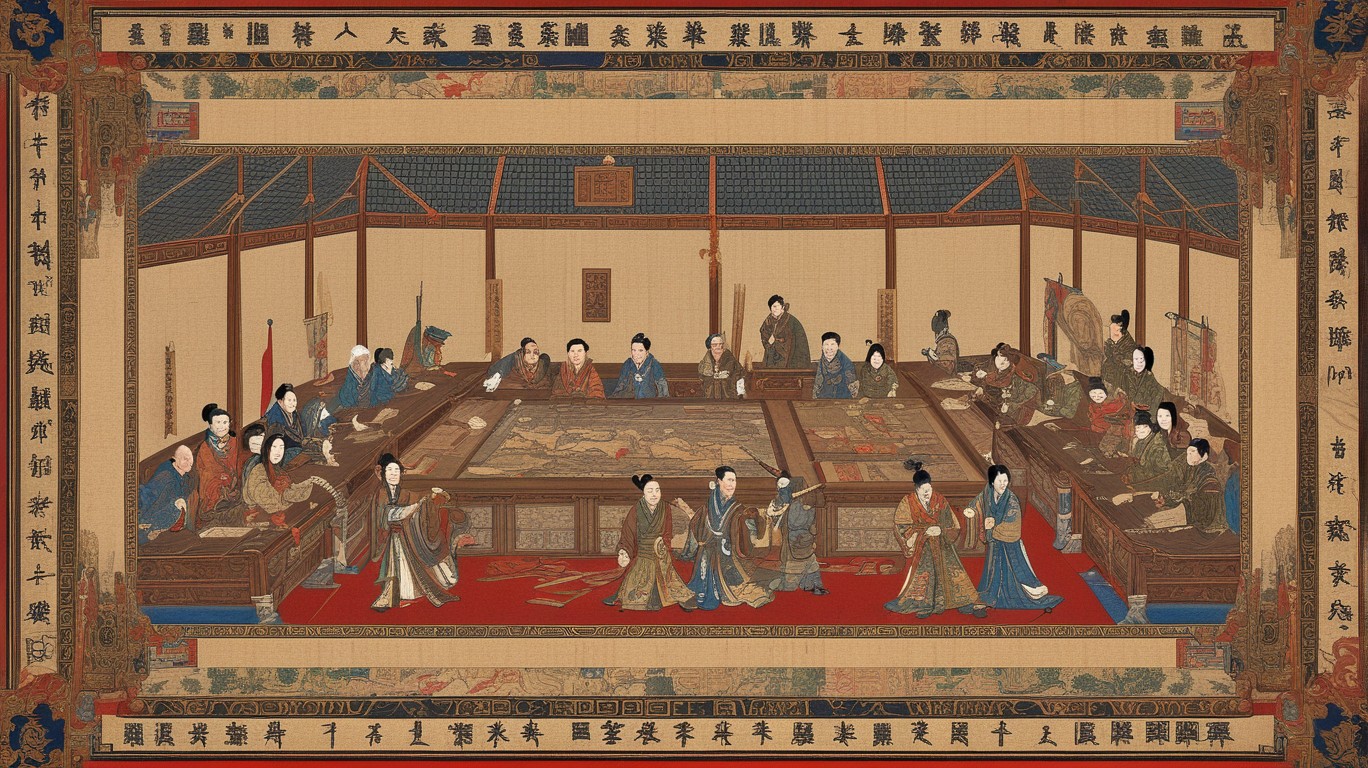
A ferocious feud erupteth in the Legislative Yuan, Taiwans' high court of law, ensuing from the clashing of minds on proposed amendments by the Democratic Progressive Faction and the Kuomintang. (The Independent)
In the hallowed halls of the Legislative Yuan, the great debates have begun anew, as the honorable members of Taiwan's high court of law find themselves at odds over matters of grave importance. These proposals for amendment come from none other than the Democratic Progressive Faction and their stalwart adversaries, the Kuomintang, whose views on governance and society clash like swords in a fierce duel.
The esteemed lawmakers have assembled to deliberate upon these proposed changes, each with the conviction that their party's suggestions are the sure path to Taiwan's prosperity. Yet it is not mere politics which fuels this conflict, but rather the profound differences of opinion on how best to serve the people and navigate the complex challenges of our time.
Let us now delve into the heart of the matter, as we explore the core principles guiding each faction in their pursuit of what they deem to be the greater good. For it is within these divergent beliefs that the seeds of discord are sown, and the battle lines are drawn.
The Democratic Progressive Faction, a party known for its liberal leanings, puts forth amendments aimed at promoting social justice and safeguarding civil liberties. They argue that in an increasingly interconnected world, it is essential to protect the rights of all citizens, regardless of their background or beliefs. Moreover, they advocate for progressive policies to combat inequality and ensure that the benefits of economic growth are shared by all.
Their opponents, the Kuomintang, hold a more conservative stance on these issues. They maintain that traditional values should be upheld and that individual freedoms must not come at the expense of public order and safety. In their view, it is essential to strike a balance between protecting citizens' rights and upholding the rule of law, lest the nation descend into chaos.
As these two visions clash in the crucible of debate, it becomes clear that finding common ground will be no easy task. And yet, if history has taught us anything, it is that even in times of strife, there exists the possibility for reconciliation and compromise. For it is through dialogue and understanding that true progress can be achieved.
So as the honorable members of the Legislative Yuan grapple with these weighty matters, let us hope that they may find a way to bridge their differences and forge a path forward for Taiwan. May reason prevail over rhetoric, and may the wisdom of our lawmakers guide them to craft policies that truly serve the best interests of the people they represent.
For in this great endeavor, we are all in this together, and it is only through unity and cooperation that we can hope to surmount the challenges before us.